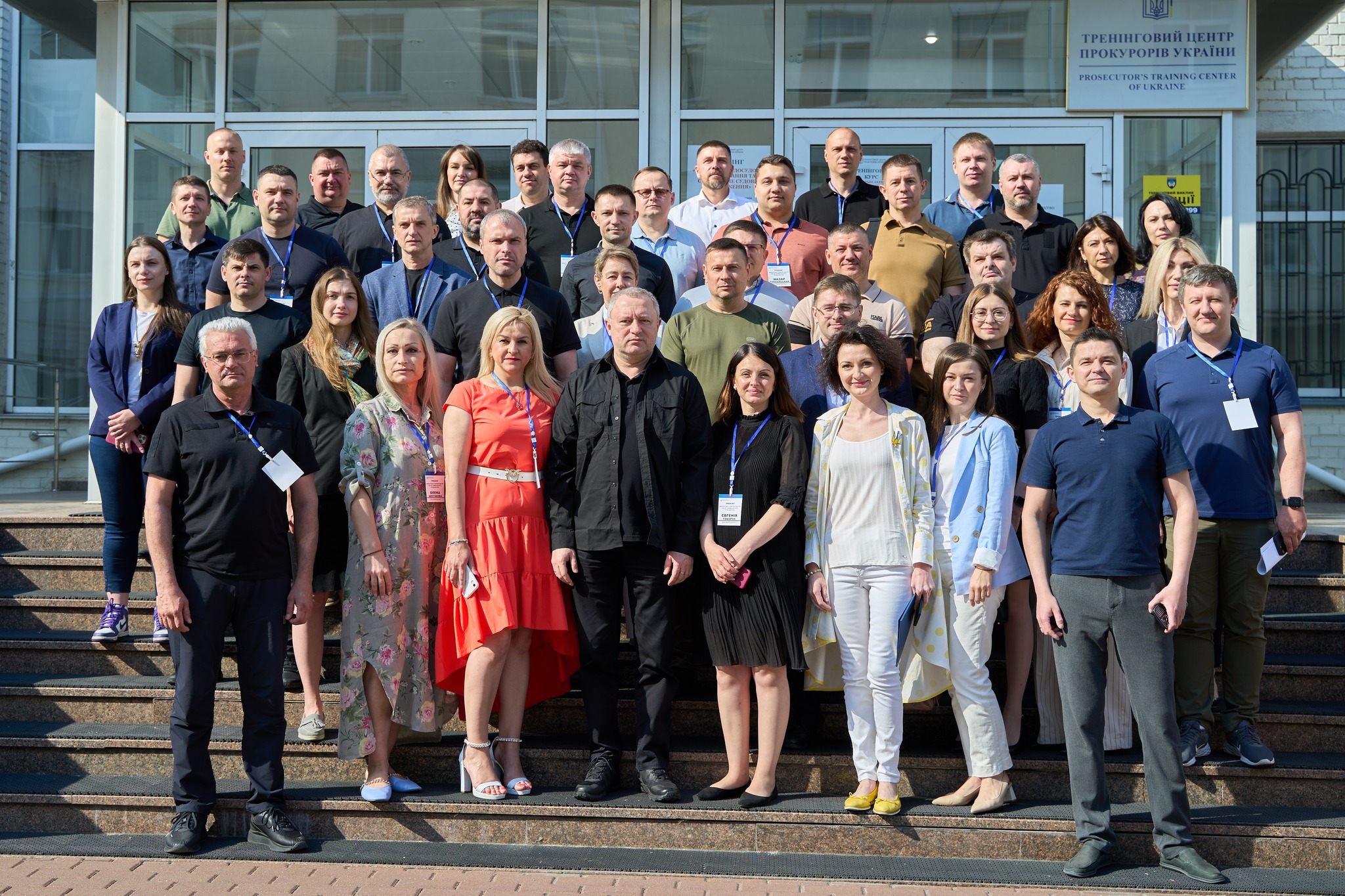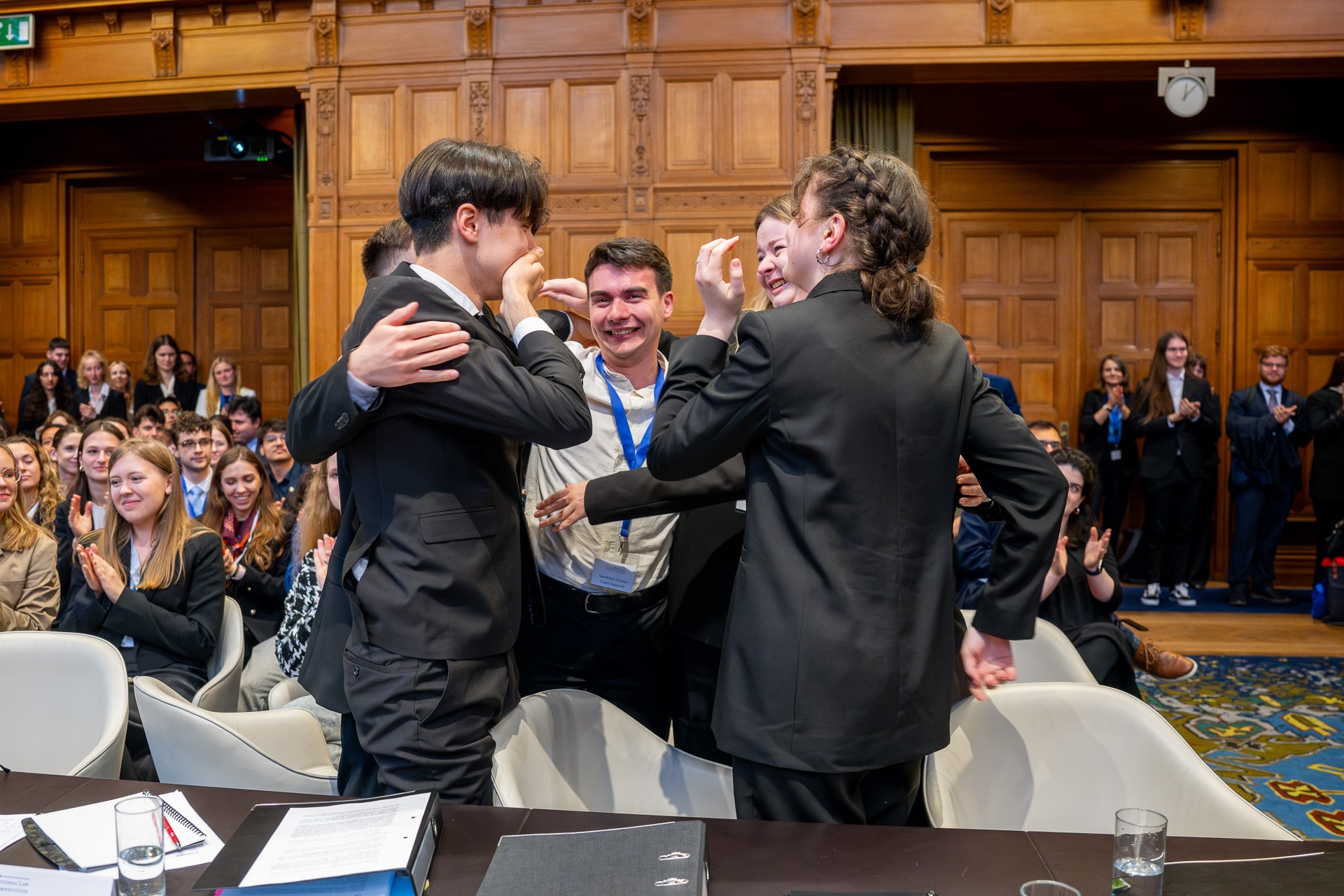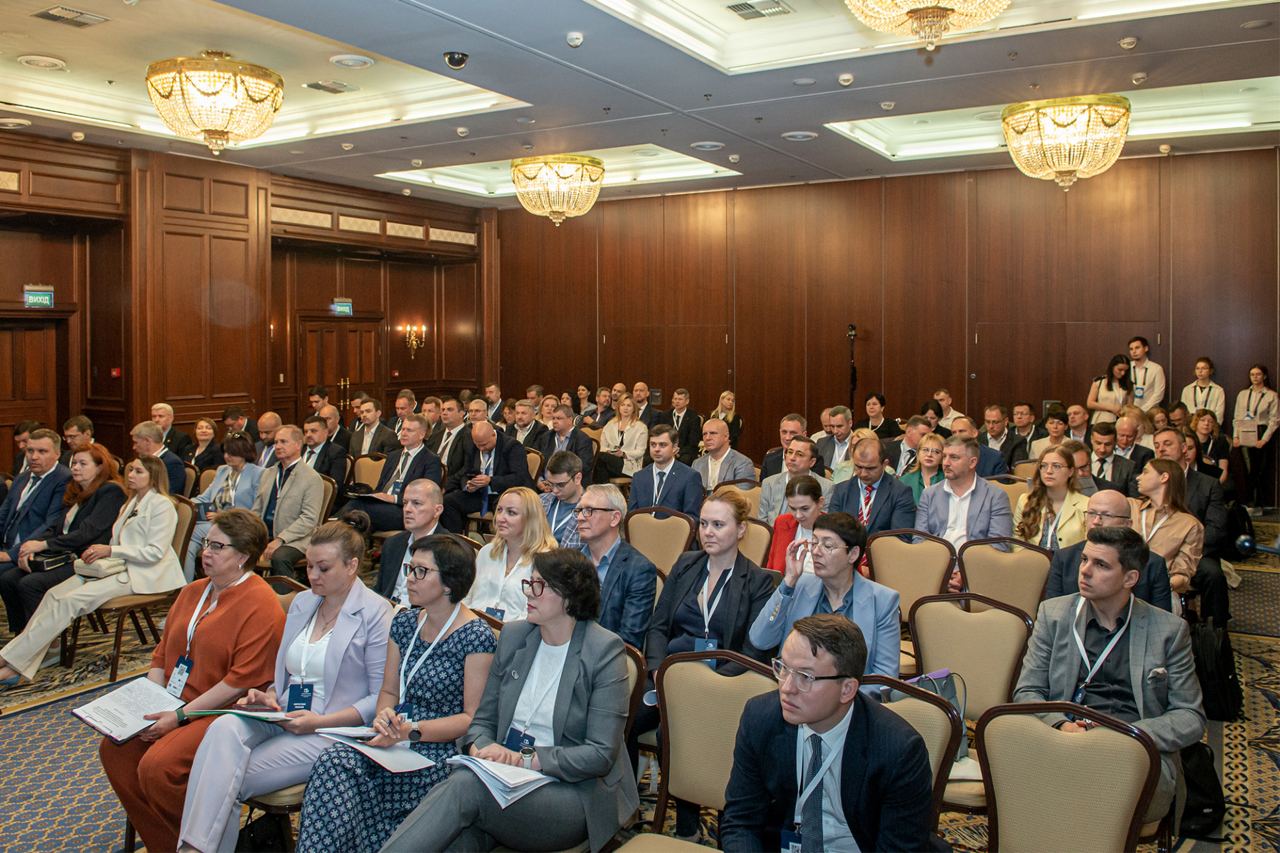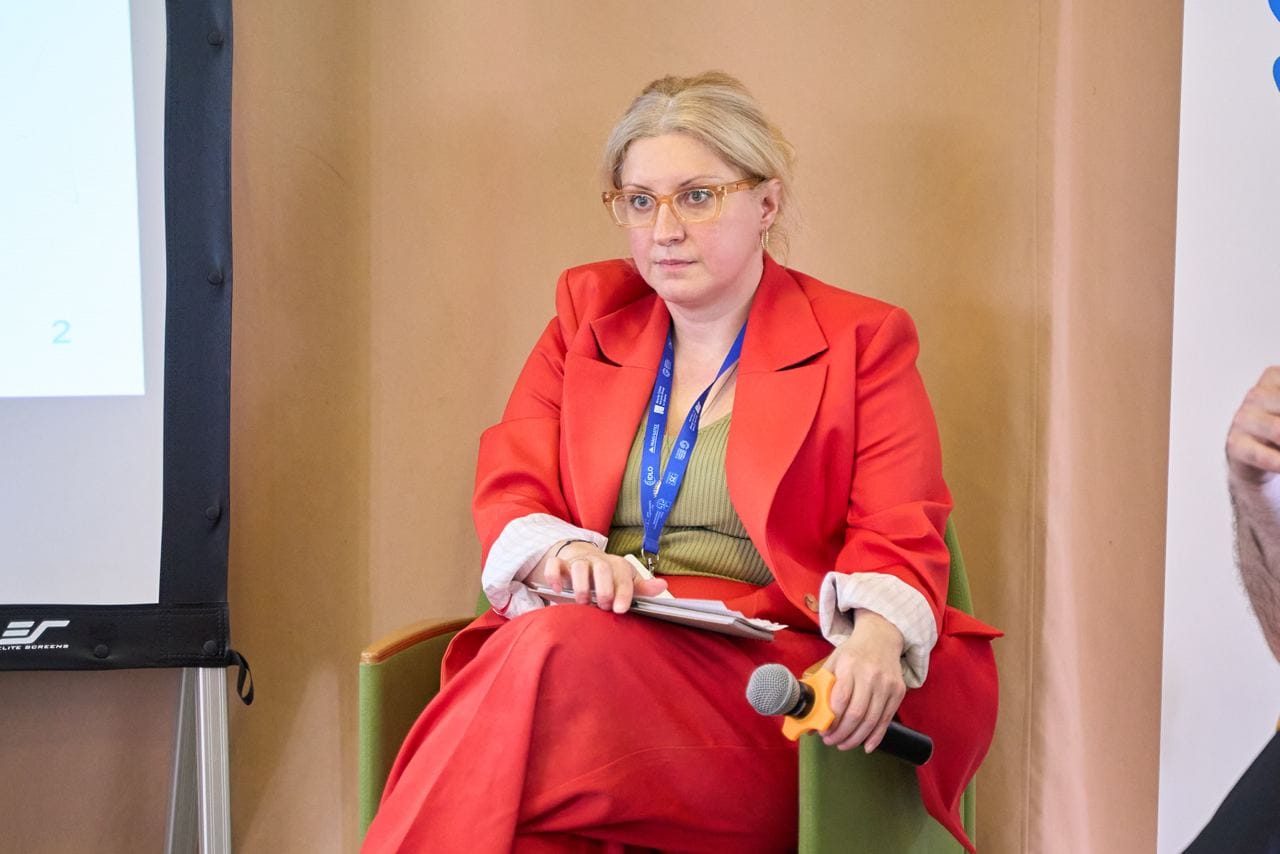Digest of EU Project Pravo-Justice. Issue No. 7 of 17 June

We are pleased to present you the regular digest of EU Project Pravo-Justice. This time, we will briefly cover the events between 29 April and 14 June.
- On 30 April, upon the initiative of EU Project Pravo-Justice, a roundtable discussion “Assessing the Damage Caused by the Russian Military Aggression: Successes, Approaches and Challenges” took place. The event sought for stakeholders to exchange views on the challenges arising while assessing and confirming the damage caused by Russia’s full-scale military aggression.
“As a result of Russia’s full-scale military aggression, Ukrainian businesses keep suffering considerable losses. A survey by the European Business Association shows that every fifth entrepreneur has suffered losses of more than $100,000 because of the war. Therefore, to receive compensation, it is first necessary to properly record and assess the damage caused by the war,” said Iryna Zharonkina, Enforcement and Protection of Property Rights Component Lead of EU Project Pravo-Justice at the roundtable.
-
EU Project Pravo-Justice keeps supporting the strengthening of probation in Ukraine and the professional development of probation staff. On 10 May, EU Project Pravo-Justice national expert Olena Kochura conducted online training for more than 80 probation mentors “Criteria for Proper Completion of Risk Assessment of Reoffending Form”. The participants will share the knowledge they gained at the training with over 3000 probation staff members.
-
On 28 May, the VІI International Legal Forum “Human Rights and Public Administration in the Modern Context” was held at the Yurii Fedkovych Chernivtsi National University with the support of EU Project Pravo-Justice.

Project experts took part in the event. In particular, Virgilijus Valančius, Support to EU Integration Process in the Justice Sector Component Lead of EU Project Pravo-Justice, said that developing good public administration and governance should be one of Ukraine’s priorities. According to EU standards, authorities and local self-government should provide professional and high-quality services to the public without violating human rights.
In her speech, Sofiia Vydra, Key National Expert on European Integration of EU Project Pravo-Justice, touched upon mediation as an aspect of European integration in Ukraine. She outlined EU mediation legislation, particularly certain provisions of the Mediation Directive (2008/52/EC) that need to be implemented in Ukrainian legislation.
- Also, on 29-30 May, the strategic session on the professional development of regional prosecutors regarding international legal cooperation took place at the Training Centre of Prosecutors of Ukraine.

The event was organized by EU Project Pravo-Justice in close cooperation with the Council of Europe Project “Fostering Human Rights in the Criminal Justice System of Ukraine” and the International Cooperation Department of the Office of the Prosecutor General.
Over the two-day training, the heads of regional prosecutor’s offices, their deputies, and prosecutors from regional specialized units worked on current legal challenges in international legal cooperation. They had an opportunity to improve their skills in preparing mutual legal assistance and extradition requests, in particular regarding international crimes.
According to Tinna Goletiani, Fight against International Crimes Sub-Component Lead, The Project will further actively cooperate with the Office of the Prosecutor General to ensure that Ukrainian prosecutors have access to best international and European practices.
- On 30 May, upon the initiative of the Ukrainian Bar Association and with the support of EU Project Pravo-Justice, III Odesa Legal Business Forum took place .
According to Iryna Zharonkina, Enforcement and Protection of Property Rights Component Lead of EU Project Pravo-Justice, the Council of Europe and the European Commission on the Efficiency of Justice state that the enforcement of a court decision is an integral part of the fundamental human right to a fair trial. At the same time, one of the essential elements of an effective enforcement system of court decisions is to develop proper professional ethics of enforcement officers.
“Every member of the professional community is important for the profession. The actions of one person have consequences for the entire profession. That is why having professional ethics is extremely important,” emphasized Iryna Zharonkina.
- EU Project Pravo-Justice supported the participation of the team consisting of Vladyslav Mykhalchenko, Vladyslav Levchuk, Anna Tymoshenko and Anastasiia Shashkevych under the guidance of Volodymyr Hryshko and Mariia Stolbova in Telders International Law Moot Court Competition. This year’s event was held at the official residence of the International Court of Justice (The Hague, the Netherlands).

The team of students from the National University of Kyiv-Mohyla Academy beat their colleagues from Comenius University (Bratislava, Slovakia) in the final round. The winners of the competition scored Second Overall Team and won individual awards, including the Best Applicant Memorial and the Best Applicant Oral Pleading.
- On 31 May, with the support of EU Project Pravo-Justice, the International Scientific and Practical Conference “Ukraine on the way to European Integration: Effective State Property Management as a Tool for Economic Recovery of Ukraine. Mission and Vision of the Commercial Jurisdiction”.

Virgilijus Valančius, Support to EU Integration Process in the Justice Sector Component Lead of EU Project Pravo-Justice, former judge of the Court of Justice of the European Union, briefed the conference participants on EU insolvency legislation and practical cases from the Court of Justice.
He noted that in 2019, an important piece of legislation was adopted, namely EU Directive 2019/1023 on preventive restructuring frameworks, on discharge of debt and disqualifications, and on measures to increase the efficiency of procedures concerning restructuring, insolvency and discharge of debt, which is taken into account by all European courts. It provides for effective insolvency procedures that are applicable in all jurisdictions of the Member States.
- Also, on 10-11 June, the first training “International Humanitarian Law, War Crimes and the Environment”, took place at the Training Centre of Prosecutors of Ukraine.
EU Project Pravo-Justice and Truth Hounds organized the event in cooperation with the Office of the Prosecutor General and the Training Centre for Prosecutors of Ukraine.

Over the two-day training, prosecutors from the Specialised Environmental Prosecutor’s Office and the Department for the Prosecution of Crimes Committed in the Context of Armed Conflict, as well as investigators from the National Police and the Security Service of Ukraine had the opportunity to deepen their knowledge of international humanitarian law, learn the basics of international criminal law and environmental case-building.
- On 7-8 June, a workshop for media “International Law of Armed Conflict and Mechanisms for Holding Russia Accountable for International Crimes” took place. The event was aimed at giving media professionals a clear understanding of the key aspects of international criminal and international humanitarian law, as well as presenting Ukraine’s progress in investigating Russia’s international crimes, as well as details and data on different types of crimes committed by the aggressor.
During her presentation, Tina Goletiani, Fight against International Crimes Sub-Component Lead of EU Project Pravo-Justice, focused on the problem of evidence when investigating crimes against humanity in the context of Russia’s full-scale invasion.

“A crime against humanity is one of the gravest international crimes. It includes, for example, prohibited acts such as torture and murder committed as part of a widespread or systematic attack directed against civilian population pursuant to or in furtherance of a State or organizational policy to commit such attack. As of now, its definition, unfortunately, is not incorporated into the Criminal Code as Ukraine is also not a State Party to the Rome Statute,” she said.
- Automated System “Bankruptcy and Insolvency”, which is to be created under the Bankruptcy Code of Ukraine, has been successfully put into operation.
The software was developed with the support of EU Project Pravo-Justice.
“EU Project Pravo-Justice pays significant attention to insolvency-related reform in Ukraine, relying on best European practices and introducing modern IT solutions. We hope that this automated system will facilitate the work of bankruptcy trustees (BTs), make insolvency procedures faster, more transparent and of better quality”, said Oksana Tsymbrivska, Team Leader of EU Project Pravo-Justice.
- On 12 June, the training course “Training of Trainers on Implementation of Services for Vulnerable Court Users: International Standards and National Experience in Wartime” was launched, which was developed by EU Project Pravo-Justice experts.
The purpose of the course is to train trainers who will be able to independently pass on the acquired specialized professional knowledge and skills to their colleagues to disseminate best European practices in ensuring access to justice for vulnerable court users in the context of war and post-war reconstruction.

- EU Project Pravo-Justice has announced a call for proposals for the annual Summer School on Constitutional Law, Human Rights and Democracy organized by the Ilia State University in Georgia.
This educational initiative brings together the most successful young lawyers from Georgia and Ukraine every year. Under the guidance of experienced lecturers, they learn to effectively deal with modern challenges related to the justice sector and the strengthening of the rule of law.
EU Project Pravo-Justice will select four law students from different Ukrainian universities who will be able to join their colleagues in Georgia in late July – early August (27 July – 2 August, dates to be finalized).